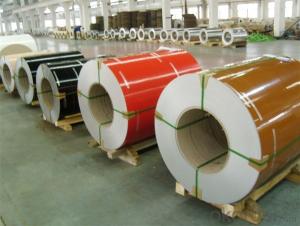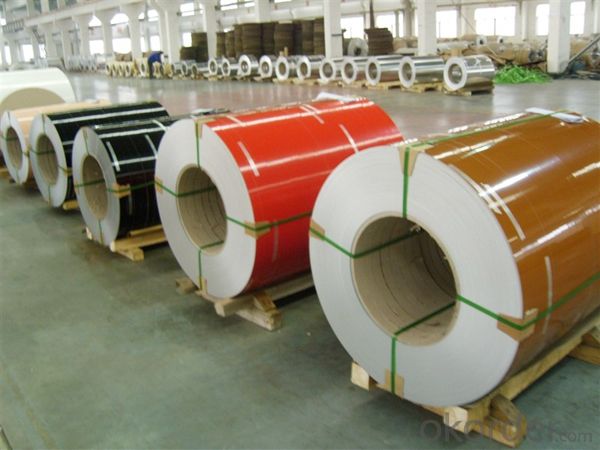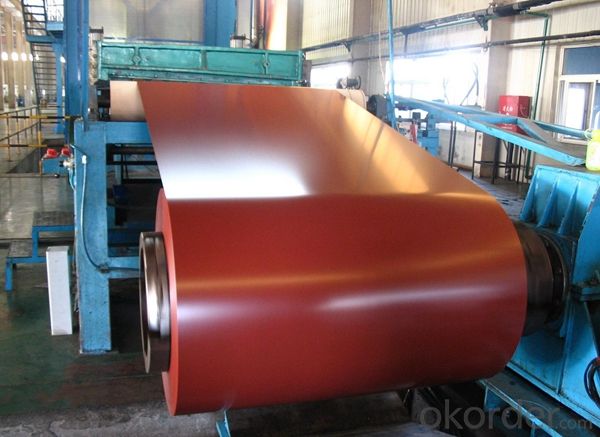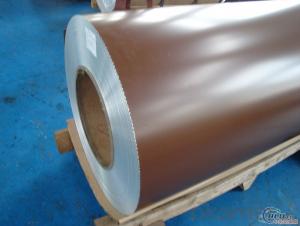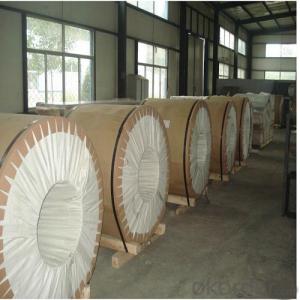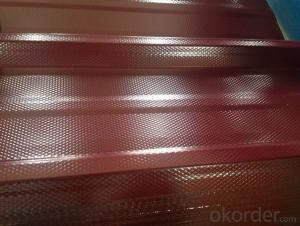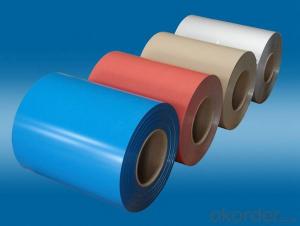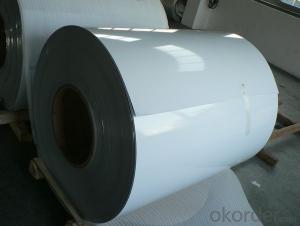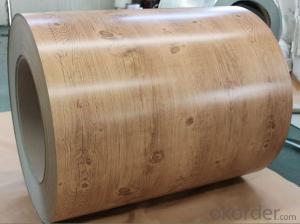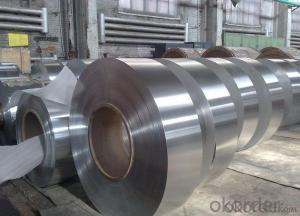Coil Coated Aluminum Plate for Metal Wall System
- Loading Port:
- Shanghai
- Payment Terms:
- TT OR LC
- Min Order Qty:
- 5 m.t.
- Supply Capability:
- 10000 m.t./month
OKorder Service Pledge
OKorder Financial Service
You Might Also Like
Specification
1. Specification of Color Coated Aluminum Coil for Metal Wall System
characteristics | Application |
1) Super peeling strength | 1) Building exterior curtain walls |
2) Excellent surface flatness and smoothness | 2) Decoration and renovation additions for old buildings |
3) Superior weather, corrosion, pollutant resistance | 3) Decoration of interior walls, ceilings, bathrooms, kitchens and balconies |
4) Even coating, various colors | 4) Shop door decorations |
5) Fireproof, excellent heat and sound insulation | 5) Advertisement board display platforms and signboards |
6) Superior impact resistance | 6) Wallboards and ceilings for tunnels |
7) Lightweight and easy to process | 7) Industrial materials, materials for vehicles and boats |
2. Application of Color Coated Aluminum Coil for Metal Wall System
(1).Interior: wall cladding, ceilings, bathrooms, kitchens and balconies, shutters, doors...
(2).Exterior: wall cladding, facades, roofing, canopies, tunnels,column covers , renovations...
(3).Advertisement: display platforms, signboards, fascia, shop fronts...
3. Feature of Color Coated Aluminum Coil for Metal Wall System
*Such coil is specially designed to replace aluminum ingot, due to the high export tax of aluminum ingot, the coil has better price than ingot.
*This type of coil can fit customer's remelting furnace just like ingot, no need to make any change to the production line that was previously used for ingot. The standard coil size and weight is very suitable for the feed gate of furnace.
*This type of coil causes less material wastage than ingot when remelted.
*Our coil is made directly from ore, no need to go though the ingot making process, quality is much better than other suppliers who use ingot scrap to make coil.
Be free from Oil Stain, Dent, Inclusion, Scratches, Stain, Oxide Dicoloration, Breaks, Corrosion, Roll Marks, Dirt Streaks and other defect which will interfere with use
4. Certificate:
SGS and ROHS(if client request, paid by client), MTC(plant provided), Certificate of Origin(FORM A, FORM E, CO), Bureau Veritas and SGS (if client request, paid by client), CIQS certificate
5. Image of Color Coated Aluminum Coil for Metal Wall System
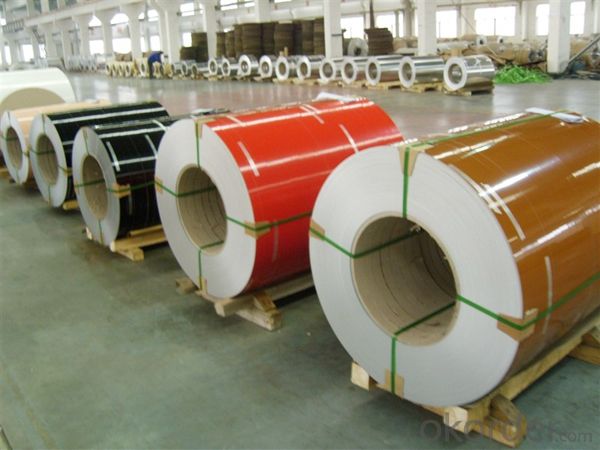
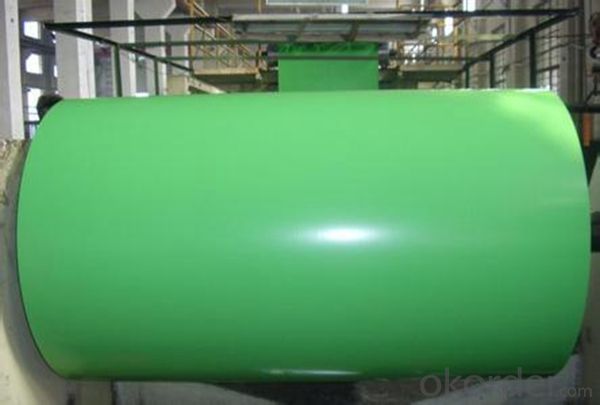
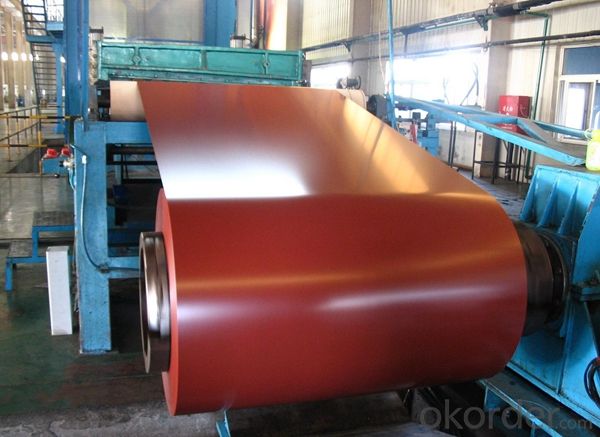
6. Package and shipping of Color Coated Aluminum Coil for Metal Wall System
eye to wall
eye to the wall
with wood pallet (wooded case also available)
7. FAQ
1) What is the delivery time?
Dpends on actual order, around 20 to 35 days
2)What is the QC system:
We have QC staff of 20 persons and advanced equipment, each production is with MTC traced from Aluminum ingot lot.
3) What market do you mainly sell to?
Australia, America, Asia, Middle East, Western Europe, Africa etc
- Q: Can aluminum coils be used in electrical transformers?
- Yes, aluminum coils can be used in electrical transformers. Aluminum is often chosen as an alternative to copper due to its lower cost, lighter weight, and better thermal conductivity. However, aluminum coils may require larger sizes to achieve the same electrical performance as copper coils.
- Q: Can aluminum coils be painted or coated after installation?
- After installation, it is indeed possible to paint or coat aluminum coils. Aluminum, being a versatile material, lends itself well to painting or coating in order to improve its aesthetics or offer extra safeguarding. Opting to paint or coat aluminum coils subsequent to installation can effectively thwart corrosion, enhance durability, and yield a personalized finish. The selection of paint or coating hinges upon the specific necessities and desired results. Prior to applying any paint or coating, it is crucial to thoroughly clean and prepare the aluminum surface to ensure strong adhesion and long-lasting results.
- Q: Are there any restrictions on the coil thickness of aluminum coils?
- Yes, there are typically restrictions on the coil thickness of aluminum coils. The specific restrictions may vary depending on the intended application and industry standards. Generally, the thickness of aluminum coils is limited by the capabilities of the manufacturing equipment and the desired final product. Thinner coils are often preferred for applications that require flexibility, such as in the manufacturing of foils or flexible packaging materials. On the other hand, thicker coils are commonly used in industries like construction or automotive, where strength and durability are important factors. Additionally, the thickness of aluminum coils may be restricted by the availability and cost of raw materials. It is important for manufacturers to adhere to these restrictions to ensure the quality and performance of the final product.
- Q: What specific tools are required for handling and working with aluminum coils?
- <p>Working with aluminum coils typically requires specialized tools to ensure safety and efficiency. These include cutting tools like metal snips or shears designed for aluminum, which are crucial for cutting the coils without damaging them. Additionally, a coil carrier or uncoiler is necessary for handling and unrolling the coils without causing injury or deformation. Protective gear such as gloves and safety glasses is also essential to prevent injuries from sharp edges or debris. For more precise work, a metal straightener or leveling machine may be needed to correct any warping in the aluminum coils.</p>
- Q: How long do aluminum coils last?
- The lifespan of aluminum coils can vary depending on various factors such as usage, maintenance, and environmental conditions. However, on average, well-maintained aluminum coils can last anywhere between 15 to 20 years.
- Q: What is the typical coil diameter for aluminum coils?
- The typical coil diameter for aluminum coils can vary depending on the specific application and industry requirements. However, in general, aluminum coils typically have a diameter ranging from 12 inches to 72 inches. The specific diameter is determined by various factors such as the thickness of the aluminum sheet, the desired coil weight, and the equipment used for processing and handling the coils. Different industries, such as automotive, construction, and packaging, may have specific coil diameter specifications based on their unique manufacturing processes and end-use requirements.
- Q: Can aluminum coils be used in vacuum applications?
- Yes, aluminum coils can be used in vacuum applications. Aluminum is a common choice for vacuum systems due to its low outgassing properties, high thermal conductivity, and resistance to corrosion. It is suitable for various vacuum applications such as cooling, heating, and heat transfer.
- Q: Is it possible to use aluminum coils in the construction of a solar charger or battery pack?
- <p>While aluminum coils can be used in various electrical applications due to their conductivity, they are not typically used in solar chargers or battery packs. Solar chargers and battery packs usually require materials with higher conductivity and specific properties for efficient energy transfer and storage. Copper is more commonly used for wiring in these devices due to its superior conductivity compared to aluminum. Aluminum may not provide the necessary efficiency and could lead to energy loss. For the best performance in solar chargers and battery packs, it's recommended to use materials specifically designed for these applications, such as high-quality copper wiring and appropriate battery cells.</p>
- Q: Are there any limitations or drawbacks of using aluminum coils?
- There exist certain limitations and drawbacks regarding the utilization of aluminum coils. To begin with, one limitation is the higher cost of aluminum coils compared to alternative coil materials, such as copper. This disparity in cost can result in reduced cost-effectiveness, especially when large quantities of coils are necessary. Another drawback is that aluminum coils exhibit lower thermal conductivity in comparison to copper coils. Consequently, the transfer of heat may not be as efficient, ultimately impacting the overall system performance. In instances where heat transfer is of utmost importance, copper coils may be the preferred option. Furthermore, aluminum is more susceptible to corrosion in contrast to other metals. Although aluminum coils are typically coated or treated to enhance corrosion resistance, they can still be vulnerable to damage in harsh environments or if the coating is compromised. This can lead to diminished efficiency and a shorter lifespan for the coils. Moreover, aluminum coils may not be suitable for certain applications that require high strength or durability. Due to its relatively soft nature, aluminum may not effectively withstand heavy loads or extreme conditions as other materials would. Lastly, repairing or replacing aluminum coils can be more challenging compared to other coil types. The unique properties of aluminum necessitate the utilization of specialized tools and techniques, consequently adding to the overall complexity and cost of maintenance or repairs. In conclusion, while aluminum coils possess advantages, it is crucial to consider these limitations and drawbacks when selecting the appropriate coil material for a specific application.
- Q: * How is hitting with a aluminum Wiffle Ball feel and work out?* Did you like the results you had hitting with a aluminum Wiffle Ball bat?
- I've used an aluminum Wiffle bat and it really feels a lot better to hit with than the yellow plastic number. The Aluminum bats are still super light, but there is a bit of weight to it, and that weight is kind of end-loaded, which you can really feel as you turn your wrists over. The net result is a swing that feels more like a real bat with the barrel whipping through the hitting zone instead of that flyswatter feel you get with the regular bats. Oh, and you definitely get more distance when you connect. Definitely. I actually played in a Wiffle Ball tournament a few years ago and used those bats. Someone said that they no longer make them or they've been outlawed or something along those lines.
Send your message to us
Coil Coated Aluminum Plate for Metal Wall System
- Loading Port:
- Shanghai
- Payment Terms:
- TT OR LC
- Min Order Qty:
- 5 m.t.
- Supply Capability:
- 10000 m.t./month
OKorder Service Pledge
OKorder Financial Service
Similar products
Hot products
Hot Searches
Related keywords
